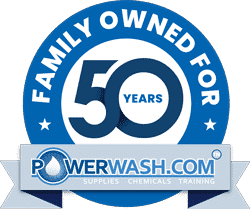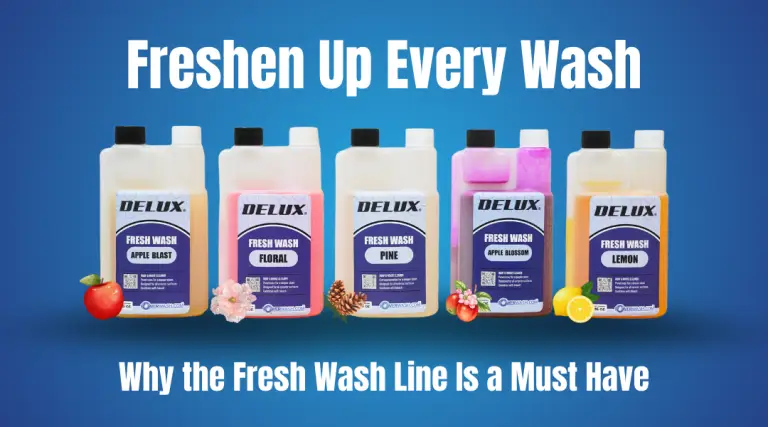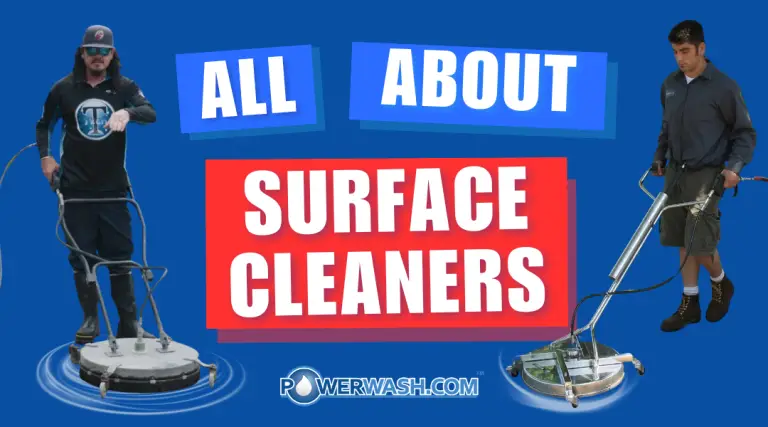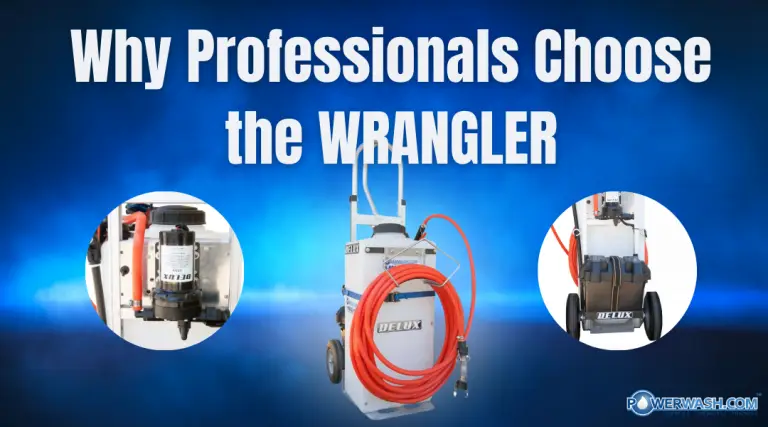- Home
- /
- Power Wash Spray Tips
- /
- Six Simple Ways to Maximize the Lifespan of your Soft Wash Pump
Subscribe To Our Newsletter
Stay in the know on the latest products, deals, events, tips & tricks.
Social Media
Six Simple Ways to Maximize the Lifespan of your Soft Wash Pump
The pump is the heart of your soft wash machine. Failures and malfunctions can have a huge impact on your business. These chemical pumps are designed to withstand some exposure to chemicals like sodium hypochlorite, but precautions must be taken due to the corrosive nature of the chemicals. Regular preventative maintenance can maximize the lifespan of your soft wash pump.
1. Flush out your system after every use.
No system is designed to be stored with the chemicals still in these components. Upon completion of a job the chemical should be purged from the entire system and the system should be flushed thoroughly with fresh water.
2. Use a sodium hypochlorite neutralizer.
When cleaning with sodium hypochlorite or sodium hydroxide you should use a product such as PM for Bleach. This product is designed to reduce the damaging effects of these types of chemicals and to also leave behind a protective layer that will help to protect against corrosion.
You also need to remember that any vehicle that is used to transport this type of chemical spraying equipment and chemical will be subjected to the same damaging effects and will need to be rinsed and cleaned as well.
3. Use a sodium hypochlorite enhancer.
Fresh Wash is a surfactant that increases the efficiency of sodium hypochlorite. This means that less sodium hypochlorite is needed to achieve desired results. Less corrosive chemical is passed through the pump, and consequently less internal pump deterioration occurs.
4. Use an accumulator tank.
An accumulator tank goes in between your pump and your gun. They provide pressure needed for chemical application so that the chemical pump does not need to be on all of the time. With an accumulator, the chemical pump forces liquid into a reservoir. Once the liquid is inside of the accumulator it starts to compress an air bladder until the maximum pressure for a pressure switch is reached. Then the pump shuts off. When an operator pulls the trigger at the gun, pressure in the air chamber forces liquid out of the system. The chemical pump stays off until the minimum pressure is reached on the switch. Then the chemical pump resumes pumping. This results in reduced cycling leading to longer switch and pump life.
5. Make sure your pump is mounted in a location with plenty of ventilation.
Pumps that are mounted inside of a trailer or a toolbox can overheat if there is not enough airflow. Help keep air moving across the pump by installing a small 12-volt fan on one side of the box and small louvers on the opposing side. You can power the fan using the same power source that you use for the pump and wire it so that it will come on when power is applied to the pump.
6. Keep your power source constant.
It is important to maintain a strong well-charged battery. When your battery drains, your pump will begin to draw more amps, and heat up. The best way to keep your soft wash equipment powered is to connect it to your vehicles charging system with a battery isolator, in doing it this way you will protect your charging system and keep both batteries charged.
Bear in mind that your equipment will eventually fail. Sodium Hypochlorite is extremely corrosive. It will slowly deteriorate the inside of your pump as it passes through. The lifespan of your equipment is heavily influenced by your preventative maintenance efforts, but it is important to have a back up in place. It is a good idea to have a spare pump on your rig. It is also very important to build the cost of equipment maintenance and replacement into your bids. This way you will always be prepared for the next job.
Share This Post
More To Explore
Beat the Heat: Summer Safety Tips for Power Washing Professionals
Protect Your Crew. Protect Your Equipment. Protect Your Business. When the summer sun blazes, pressure washing jobs don’t stop—but the ...
Soft Wash Additive That Smells Amazing? Meet Fresh Wash
Freshen Up Every Wash Soft washing is all about precision, power, and presentation — and nothing completes a job like ...
Mastering the Art of Pressure Washing: Key Insights on Surface Cleaners
For professionals in the pressure washing industry, a surface cleaner is an indispensable tool, particularly for those who specialize in ...
The Wrangler™ Chemical Sprayer: The Ultimate Tool for Professional Cleaning Applications
For commercial cleaners and pressure washing professionals, efficient chemical application is key to achieving the best results. The Wrangler™ Chemical ...









